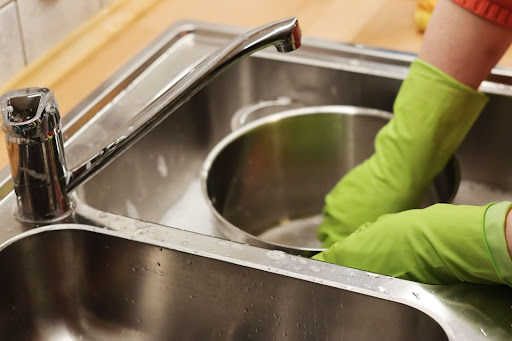Preparing food and enjoying it with your loved ones is all part of the fun when you’re a foodie. However, you must follow strict hygiene rules to ensure your dinner parties don’t involve a side of food poisoning.
These rules apply to every cook, whether you’re working in a school cafeteria, a five-star hotel, a fast food joint, or a home kitchen. Let’s explore them, shall we?
Table of Contents
1. Store Food Effectively
Storing your food in proper containers is a must. When food is properly stored, debris and chemicals won’t fall into it, and bacteria and other germs are less likely to contaminate it.
If there are leftovers, don’t leave them in an open space. Instead, cover and seal them with clean plastic paper or cling wrap. And avoid storing prepared food with raw food.
What’s more, you can keep food fresh for a long time in the freezer, so long as you store it in sealable containers. Stock up on high-quality containers for flour, rice, legumes, pasta, and other foods from an online kitchenware store.
2. Keep Your Hands Clean
Your hands are going to touch everything you cook, so it makes sense that keeping them clean is the first basic rule of food hygiene. If your hands aren’t clean, you can easily transfer germs to the food you’re preparing.
Clean your hands before, during, and after food preparation. Wash them frequently with soap or use sanitizers. As part of keeping clean hands, keep your nails short and make sure they’re always clean.
3. Clean as You Go
You’ll inevitably use a lot of different utensils while cooking, not to mention all the counter space you’ll take up. Cleaning all of this after the fact can be intimidating, which is why it’s important to clean as you cook. Not only will this make the task easier, but it will also prevent bacteria from spreading.
If you use any cleaning chemicals, be sure they’ll sanitize the area without contaminating your cooking.
4. Clean the Refrigerator/Freezer Regularly
As mentioned, you can keep food fresh in the refrigerator for as long as you want, and the freezer is there for long-term food storage. However, both need frequent cleaning.
Soups and sauces can spill into the fridge, which can end up serving as a breeding spot for harmful bacteria and other germs. So apart from cleaning it out regularly, make sure to throw out spoilt food and anything that has expired.
5. Take Out Kitchen Bins Regularly
Always take out the kitchen bins. Tossed-out food will decompose, leading to the breeding of germs in your kitchen. That will also bring about maggots and foul odors – none of which you want. So take out that kitchen bin!
6. Remove Grease
Removing grease is also essential. Be it from pots, pans, plates, or surface areas where it might have spilled, grease can offer a breeding ground for bacteria. So wipe it off with a rag and cleaning soap before finishing with surface cleaner. If grease spills onto the floor, clean it as soon as possible with the right chemicals for the job.
7. Clean Kitchen Sinks and Basins
Kitchen sinks and basins need regular cleaning to avoid germ build-up. Not cleaning the kitchen sink will also result in a grimy, greasy look, which no one wants to see. Be sure to clean it throughout the day and sanitize it regularly.
Follow these golden rules, and you can look forward to many safe and delicious cooking adventures in your kitchen.










